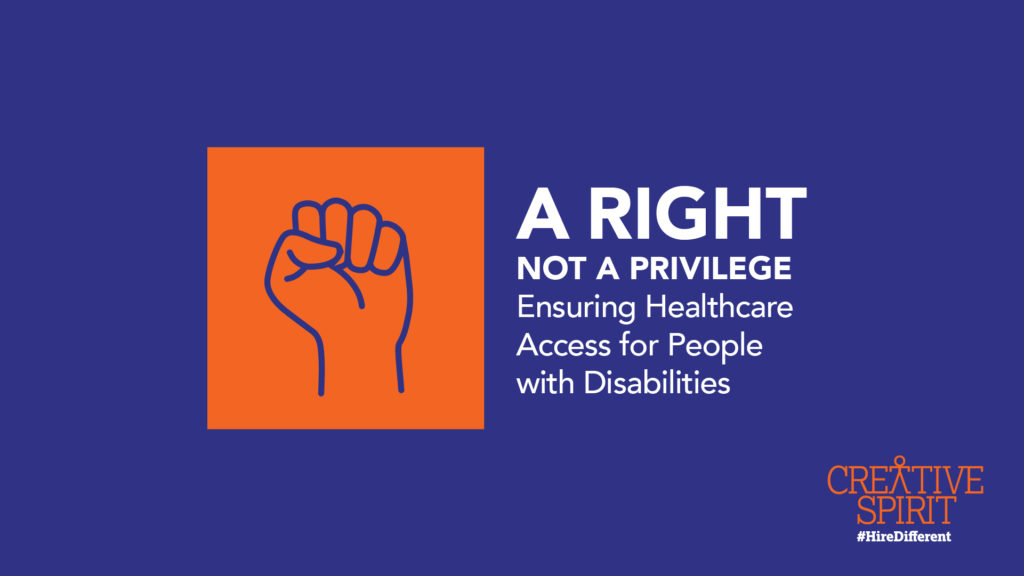By Menachem Rephun, Creative Spirit Communications Manager

For most of the 20th century, Americans with disabilities were marginalized and denied fundamental inclusion and accessibility at school, work, and public transportation. In 1990, the Americans with Disabilities Act (ADA) was enacted with the promise of finally creating an inclusive, equitable society that would protect individuals with disabilities from unlawful discrimination. While the ADA has been impactful and beneficial on many levels, such as improving public transportation and employment, 32 years later, the approximately 61 million adults in the U.S. with disabilities still face severely restricted access to a cornerstone of human rights: primary healthcare. In the following article, we’ll explore insights from experts and individuals with disabilities on why achieving healthcare inclusion is so vital and practical strategies to get there.
In a report titled “Improving Healthcare for Adults With Disabilities,” the Centers for Medicare and Medicaid Services (CMS) points out that adults with disabilities are nearly twice as likely to report their medical needs being unmet, a problem that is even more serious given that people with disabilities are generally more in need of healthcare access than the non-disabled population. “Even if patients with disabilities can get to the doctor, they are less likely to receive a complete examination, especially if they use a wheelchair,” DukeHealth.org states. “In addition, female patients with disabilities are less likely to receive gynecologic examinations or Pap tests.” The World Health Organization (WHO) reports that people with disabilities are three times as likely to be denied healthcare access, protection during health emergencies, and access to cross-sectorial public health interventions, such as water, sanitation, and hygiene services.
Meaningful change cannot be achieved until the basic needs of a community are fully appreciated. As such, reforming the healthcare system depends on healthcare providers and policymakers genuinely hearing the concerns of people with disabilities, respecting their individuality, and rejecting a one-size-fits-all approach to providing medical care. In 2019, CMS spoke with several individuals with varying disabilities who shared their challenges navigating the healthcare system and some areas where they’d most like to see improvement. “With going to the ER, if I don’t tell them how to treat me, they would just treat me like any other patient who walks into the ER, and it would hurt more than help,” Karl, who has osteogenesis imperfecta, said. Mia, another interviewee with osteogenesis imperfecta, recalled an incident in which paramedics told her that they could take her to the E.R., but not her service dog. “Going to any doctor’s appointment or anywhere in this world, it’s really not made for wheelchairs,” Josh, who has a spinal cord injury, said, describing his experience with restricted physical accessibility during medical appointments. At the same time, the interviewees highlighted practical changes that could have a significant impact if implemented. “One of the best ways for a doctor to really accommodate my needs is when they ask me questions,” Mia said, “and don’t make any assumptions of what I can or can’t do.” Karl acknowledged the need for research and clear communication for both providers and patients. “Being healthy and having a healthy relationship with a provider goes both ways,” he said, “so the provider has to be proactive in looking into my condition, but I also have to be doing the proactivity where I need to look into doing the research for what provider I need, and communicating my needs to my provider because they’re not going to know unless I tell them.” Along with these testimonials, a 2015 study by researchers from the University of Pennsylvania and the University of California, Irvine found that many individuals with disabilities reported barriers to healthcare, including, but not limited to, poor coordination among providers; difficulties with insurance, finances, transportation, and facilities; feelings of being diminished; and inadequate providing of information. The sobering reality for many individuals with disabilities is that the health care system, at present, is not designed with their basic needs in mind.
Thankfully, 2022 saw a significant breakthrough with the NCD’s Health Equity Framework (HEF), a comprehensive plan to break down barriers and eliminate systemic healthcare access inequity for people with disabilities. Released in February, the HEF calls for an “all-of-government approach to achieve health equity in the United States and our territories for the largest unrecognized minority group in this country, the over 61 million people with disabilities, and sets forth a framework to achieve health equity for all people with disabilities.” To achieve this, the framework suggests, among other things, designating people with disabilities as a Special Medically Underserved Population (SMUP) under the Public Health Services Act, requiring the use of accessible medical and diagnostic equipment; and improving data collection concerning healthcare for people with disabilities. To underscore the need for change, the HEF points out that health disparities between disabled and non-disabled individuals have not improved since the publication of the NCD’s last major report in 2009. “Today, in the United States, if you are a person with a physical, intellectual, or developmental disability, your life expectancy is less than that of someone without disabilities,” the HEF explains. By designating people with disabilities as a Special Medically Underserved Medical Population, they will receive numerous benefits, including federal funding for health centers and public health infrastructure such as Federally Qualified Health Centers; incentives for doctors to treat people with disabilities through higher Centers for Medicare and Medicaid Services (CMS) reimbursement rates; “preference is given to research at federal agencies, including the National Institutes of Health, that studies medically underserved populations”; and much more.
In a report published this October, Health Affairs.org also notes that the ADA has not sufficiently improved equity for people with disabilities. “It is critical to officially recognize people with disabilities as a Health Disparity Population under federal law,” Health Affairs stated, “and pursue evidence-based policy changes to realize the ADA’s goal of enhancing full participation, independence, inclusion, and equality of opportunity for all Americans with disabilities.” The report suggests pursuing integrated care programs for Medicaid recipients with disabilities, which often feature flexibility in coverage beyond the usual bounds of Medicare and Medicaid, extending Medicaid buy-in programs, and expanding access to home and community-based services. The NCD recommends that States “develop mechanisms whereby health insurers, managed care organizations, and other health plans provide assurances that the health care providers (for example, hospitals, clinics, diagnostic centers, provider offices, and laboratories) with whom they contract for Medicaid and other federally funded health care services provide physical and programmatic access for people with disabilities.” All of these proposed solutions and innovative strategies can have an enormous impact on improving healthcare equity and accessibility for millions of Americans with disabilities. Educational efforts to reduce bias among doctors and healthcare providers are also vital. A 2022 focus group study of 200 U.S. doctors, published in the journal Health Affairs, found that many admitted to bias against patients with disabilities, describing them as “entitled” and deliberately turning them away. This bias is consistent with the reported experiences of countless people with disabilities.
While Creative Spirit focuses primarily on employment, we also firmly believe that access to basic medical care is a fundamental component of an ethical, humane society, especially for people with disabilities, who comprise the most significant minority demographic in the United States. In short, healthcare access is a fundamental right, not a privilege, which carries even more weight when considering that, statistically speaking, almost all of us will experience or be affected by disability at some point in our lives. Earlier this year, the National Council on Disability (NCD) stated that “as long as maternal health disparities exist between women with physical, sensory or intellectual disabilities compared to women without disabilities; as long as people with physical, intellectual or developmental disabilities have a life expectancy that is less than half of someone without disabilities; as long as people with disabilities are significantly more likely to have unmet medical, dental and prescription needs than those without disabilities; and as long as disability-based discrimination remains pervasive and systemic throughout our healthcare system aided by federal funds, our great nation carries a shameful blot on its measure of success.” In 2022, the alarming gap in healthcare accessibility between disabled and non-disabled Americans needs to finally be closed. Breaking down the prejudices and stigmas surrounding disability, which unfortunately have seeped into the healthcare system, would represent a major step in the right direction towards creating a healthcare system that genuinely accounts for the needs of all Americans.
Sources:
- https://www.cms.gov/files/document/federaldatadisability508.pdf
- https://physicians.dukehealth.org/articles/six-ways-improve-access-care-people-disabilities
- CMS video: https://www.youtube.com/watch?v=VgbPFV0i3vA
- https://www.healthaffairs.org/doi/10.1377/hlthaff.2022.00475
- https://pubmed.ncbi.nlm.nih.gov/26482010/
- https://ncd.gov/publications/2022/health-equity-framework






